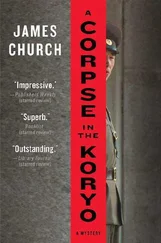Vispy had already acquired a reasonable fluency in the scriptural passages one has to commit to memory in order to become a naavar. For most people, I suppose, this isn’t a very difficult task. In fact he had easily cleared that milestone while still in his fifth form and, since then, had been qualified and fully authorized to participate in certain of the less abstruse liturgical services.
(In those days, students matriculated in their seventh year of school. By the time I reached my seventh year, however, an augmented curriculum compelled the education board to move the final exam up, so that I had already been attending school for eight whole years when I failed my matric. During his final year of school, not wanting to distract him from his studies, my parents had denied Vispy permission to participate in the Mukhtaad ceremonies. Otherwise, for two consecutive years prior to that, the young naavar had donned the robes of a priest and joined in the jamboree of prayer.)
During All Soul’s Week — which with us Zoroastrians actually lasts an entire ten days preceding the New Year — Father’s small temple was virtually besieged by earnest supplicants entreating him to requisition prayers for their dear departed.
‘Impossible! Ek minute bhi nathi ,’ Father would expostulate. ‘But how? From where will I find the time?’
The regular customers had booked their date and time weeks in advance. But every year saw an additional influx of believers who, by word of mouth, had heard stories of the fire temple’s wondrous aura of immaculate purity, where prayers were weighted with so much sincerity (and so well articulated) that they were actually known to elicit results.
At such times, Vispy, and several other young naavars like him, were summoned to perform the additional ceremonies. Then, every square foot in the marbled floor of the main hall would be crowded with frowzily-clad priests in white muslin gowns, some even younger and more diminutive than myself— and I had thought I was short — sitting cross-legged on the carpeted floor, surrounded by trays of fruit, flowers and daraanmalido. Three sides of the rectangular room were circumscribed by long banquet tables crowded with silver or copper flower vases, each one in memory of a departed soul who, it was believed, returned during this season to partake of the incorporeal feast of prayer and food provided for by his or her family. There were also a few, small round tables holding a single vase each for those who could afford this exclusivity and didn’t want to be huddled among a rabble of souls — and, of course, dozens of glistening thuribles in the large room, one for each of the ceremonies being performed, crackling and spluttering with the strong aroma of righteousness.
By a skilful manipulation of timings, Father was able to accommodate everyone’s needs, and ceremonies in remembrance of the dead proceeded thick and fast, six, sometimes even eight, being performed simultaneously at any given hour of the morning. Before noon, though, all such ceremonies came to an end.
Lucky Vispy, how I envied him: he was allowed to retain the stipend he received for each ceremony performed, to use as he pleased. In my own case, I was not offered even a paisa in pocket money. Though my father could scarcely have afforded it had he wished to, he justified my deprivation, to himself as well as the rest of the family, as meet punishment for a rash, frivolous and undisciplined offspring.
By 8 p.m., when Father retired, if mother was not feeling too tired herself after dinner had been served, she would stretch out on the creaky easy chair with the book of liturgies open in her hand to some passage I was having difficulty with. I would sit beside her on a low stool repeating aloud after her certain verses and phrases in the hope they would stick in my memory. But every so often these strange sounds would trigger off involuntary aural associations in my mind that brought on the giggles. For instance, there was this extraordinary passage:
Mem pah geti manido
Oy-em goft, oy-em kurd, oy-em just, oy-em bud budastead .
It probably meant something completely profound and sublime, but in the wicked recesses of my mind I heard its intrinsic meaning distinctly. Utterly far-fetched nonsense, which never should have been verbalized; yet, only as a lark, I couldn’t resist offering it to Mother as my ‘free translation’ of the passage:
If I don’t get my malido on time ,
I may just go nuts, and bite someone in the bud !
In an instant that seemed to linger for aeons, her eyes enlarged in growing disbelief. The effort of suppressing both anger and utterance — Father already fast asleep in the next room — rendered her voice flutey and jagged with hysteria:
‘Can’t show respect to even the most sacred? What’s wrong with you? What’s to become of you, you silly oaf? Everything is funny to you! You’ll end up a complete failure, a nobody: a jokester! And, in the bargain, break your poor father’s heart. .’
Her words echoed in my ears long after we had repaired in all sobriety to the holy text. I certainly didn’t want any harm to come to my father. Already, he endured acute flatulence and during his worst bouts, complained of chest pains.

As I had failed miserably in the final board exams, when the new academic year started, I no longer had the legitimate pretext of leaving for school every morning. At the same time, my curiosity about the world outside had increased tremendously. Luckily, my parents were officially notified about extra coaching classes that the school was providing for its eleven monumental duffers (including yours truly).
Also, to my advantage, they were more than aware of my friendship with Rohinton Kanga, whose father, Nariman, had just commenced production of bolts of cotton cloth at his new mill in Worli. Nariman Kanga’s reputation as entrepreneur extended well beyond the Bombay province. Though Kanga Mills was only one of over a hundred such enterprises that had been inaugurated in the state during the last fifty-odd years (and the third, among Kanga’s own), this mill had the distinction of being the first to be located in the Worli area. Moreover, Nariman had recently been in the news for simultaneously constructing rows of neat little back-to-back tenements not far from the mill, providing subsidized housing for his workforce that had been drawn from the native populations of Solapur and Nasik. This was considered another feather in the cap of Kanga’s numerous innovative achievements.
Given his considerable wealth, well-publicized philanthropic impulses, and unimpeachable prestige in the temporal world, Framroze and Hilla were actually proud of the fact that his son was a close friend of their own. That Rohinton, on occasion, had actually visited our quarters behind the temple, spent lazy afternoons stretched out on the easy chair playing draughts with me, or noisily sipping a Dukes’ aerated ice-cream soda, fetched post-haste by a temple boy — or sometimes by Mother herself, if no temple boy could immediately be located — from Merwaan’s, the corner Irani store.
Though my father frowned darkly at gossip he sometimes heard about Nariman Kanga’s freethinking ways and ardent nationalism, he was willing to ignore it since it was after all only hearsay. I, too, had been shrewd enough never to let on to family a piece of knowledge I was privy to: that during the sticky, summer months of Bombay, Rohinton himself — and probably, even his dad, or so my friend assured me — never wore a sudrah under his shirt: the sacred vest that every self-respecting Zoroastrian wears next to his skin: his spiritual armour.
Читать дальше













